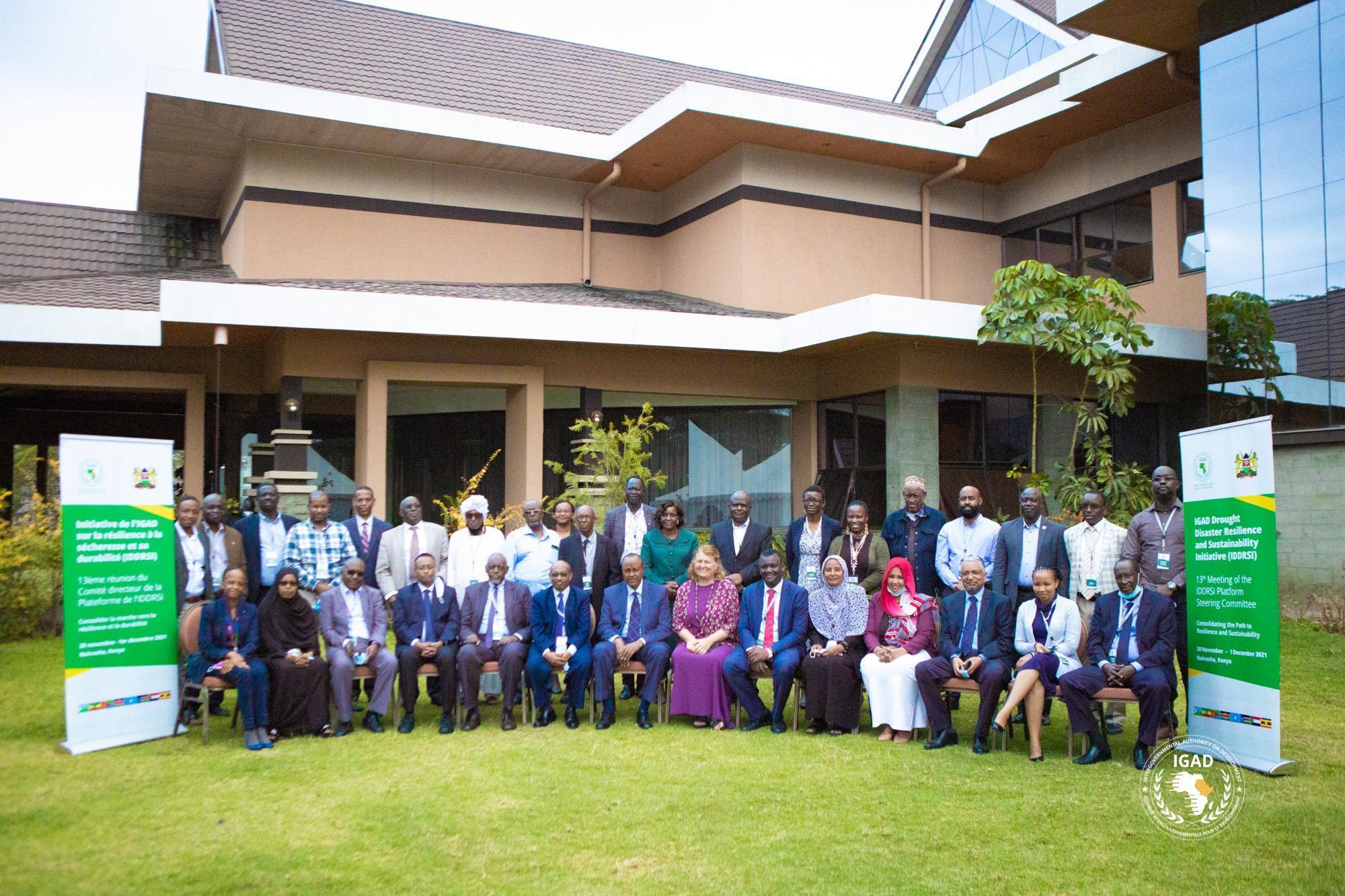- Mr. Abdul Bahari, Chief Administrative Secretary representing Prof. Margaret Kobia, Cabinet Secretary, Ministry of Public Service, Gender, Senior Citizen Affairs, and Special Programs in Kenya and our esteemed host;
- Mr. Jemal Aliye, Coordinator of Drought Resilience Program in Ethiopia representing Dr. Fikru Regassa the State Minister of Agriculture of the Federal Democratic Republic of Ethiopia,
- Dear IGAD Colleagues, Ladies, and Gentlemen;
- Ladies and Gentlemen;
- All Protocols Observed;
It is a real pleasure for me to welcome you today, to this special meeting, which has been convened to review our resilience-building proposals to uplift the lives and livelihoods for communities in the cross-border between Ethiopia and Kenya.
This endeavor is undertaken within the framework of IGAD’s drought resilience initiative, widely known as IDDRSI; and aims at promoting inter- state cooperation to facilitate cross-border development, which is also consistent with the objectives of the AU’s 2014 Niamey Convention on Cross- border Cooperation. Through its various divisions and specialized centers, IGAD has been implementing a number of cross-border initiatives. The launch of IDDRSI renewed the momentum on regional integration from below, paying particular focus on addressing problems of cross-border communities, through multi-sectoral interventions at national and regional levels.
To facilitate the implementation of IGAD’s mandate to bring our Member States closer, the meeting of the IDDRSI Platform Steering Committee held in April 2016 tasked the IGAD Secretariat to identify sites that would catalyze inter-state collaboration.
IGAD is all about softening borders especially where the inhabitant communities share a common history, language, cultural practices and livelihoods strategies. So far, 8 such areas have been identified, largely located in the arid and semi-arid lands. Specifically, the cross-border area in the Southern Ethiopia bordering Marsabit County in Kenya, has been designated as the Borana Cluster (or IGAD Cluster 2).
The shared human and natural resources in each cluster are common assets that provide an opportunity for the collective development of cross-border areas. However, cross-border areas are also a theatre of sporadic conflicts and chronic instability due to the uneven distribution of resources especially in economic opportunities and disparities in social services provided by neighbouring countries.
This perennial challenge has necessitated a paradigm shift in development approaches in cross-border areas. The implementation of IDDRSI has provided the requisite framework through which the regularization of cross- border development can be undertaken. Through the IGAD cluster approach, a more effective means of developing cross-border areas is being now being rolled out. IGAD has driven a shared vision where our Member States are now treating shared ecological zones as a common resource.
Excellencies, Ladies, and Gentlemen,
With this in mind, it is worth noting that the livelihoods of communities in the Borana are predominantly dependent on pastoralism and agro- pastoralism. In Ethiopia, livestock exports account for 20% of the national exports whereas 90% of the live animal exports are supplied by pastoralists.
Moreover, the pastoral production system in Ethiopia contributes to the domestic supply of meat and milk, where milk supply accounts for an estimated 80% of the annual Ethiopian milk supply1.
The Federal Ministry of Agriculture further estimates that the contribution of livestock stands at 25% of total agricultural GDP. In Kenyan case, the pastoral sub-sector contributes to 8% of GDP, employing over 90% of people in 23 ASAL Countries2.
Therefore, despite significant economic contributions of pastoralists in our region, and in IGAD Cluster 2 there is a visible need for further investments to strengthen the adaptive capacity of pastoralists against the negative impacts of climate change, the incidence of flood, locust invasion that destroyed the rangelands in our region, the COVID 19 pandemic, and conflicts induced by multiple drivers, require thorough rethinking based on systematic studies and planning
In this regard, the IGAD Cluster 2 Resilience Programme Document that we will review today was developed through a bottom-up approach that involved the cross-border communities of the two countries of Ethiopia and Kenya. This program consists of proposals in four priority intervention areas,
- Sustainable Natural Resources Management
2. Access to and Delivery of Basic Social Services including Water,
Sanitation, Hygiene, Health and Education
3. Sustainable Peace and Security Interventions 4. Improved Livelihoods and Social Development
The resilience programming document in front of us for review today deserves special attention because it attempts to address the challenges and opportunities of the pastoral communities in the IGAD Cluster 2. More specifically, it aims at building transboundary resources for mutual benefit by communities in Kenya and Ethiopia, which include; rangelands, water, schools, and health services. Moreover, cross-border development facilitates the free movement of people, goods, and services through which cross- border trade can be promoted.
Therefore, I request the Ministers and Officials of the cluster countries and development partners to join us in raising the necessary funds to implement projects addressed in this programme document. In this connection, I am confident that the projects that will be implemented in the IGAD Cluster 2 will strongly complement the investment placed in the modern highway between Nairobi and Addis Ababa and the One-Stop Border Post.
Finally, I would like to thank all the cross-border communities of the IGAD Cluster 2, local and national experts from both Ethiopia and Kenya, IGAD staff, and Development Partners for their contribution in the development of the Resilience Programme Document of the IGAD Cluster 2.
Thank you!

Download the attached Speech in PDF below
IGAD ES Statement – IDDRSI Borana Ministerial Cluster Meeting 29.11.2021
